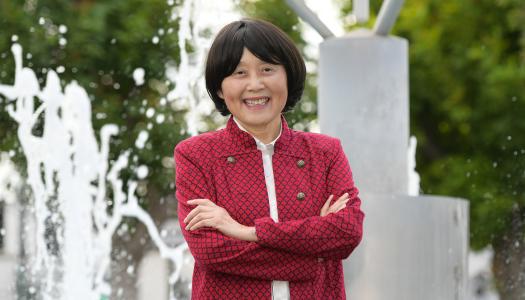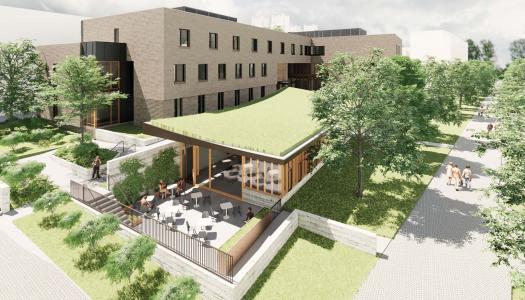Major High Meadows gift renames Princeton Environmental Institute
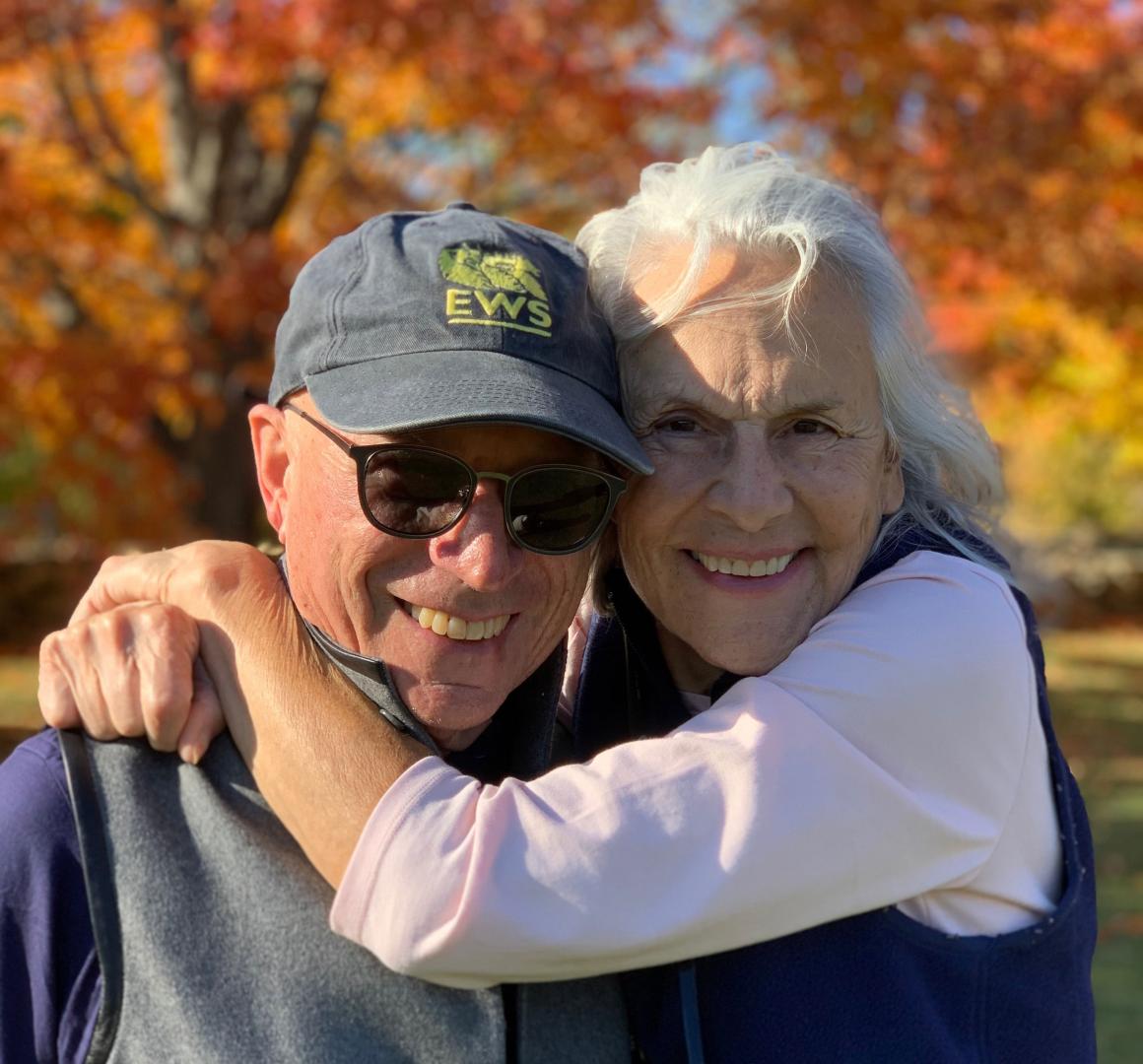
The High Meadows Foundation, a philanthropic organization co-founded by Judy and Carl Ferenbach III, a member of the Class of 1964, has made a transformative gift to Princeton University that will support environmental research and educational initiatives through the Princeton Environmental Institute (PEI), the University’s interdisciplinary center for environmental research, education and outreach. PEI has been renamed the High Meadows Environmental Institute (HMEI).
“For the past quarter century, PEI has catalyzed multidisciplinary environmental research at Princeton while educating new generations of global citizens and leaders,” said President Christopher L. Eisgruber ’83. “With our planet increasingly threatened by intersecting environmental crises, Judy and Carl Ferenbach’s passion and vision for protecting the environment are more important than ever. Carl and Judy have helped to guide PEI from its inception, and their support has enabled the University to become an innovative leader in the effort to understand and protect our natural world. As the Institute enters a new chapter in its history, it is with deep gratitude that we recognize the Ferenbachs’ many contributions by naming the High Meadows Environmental Institute in their honor.”
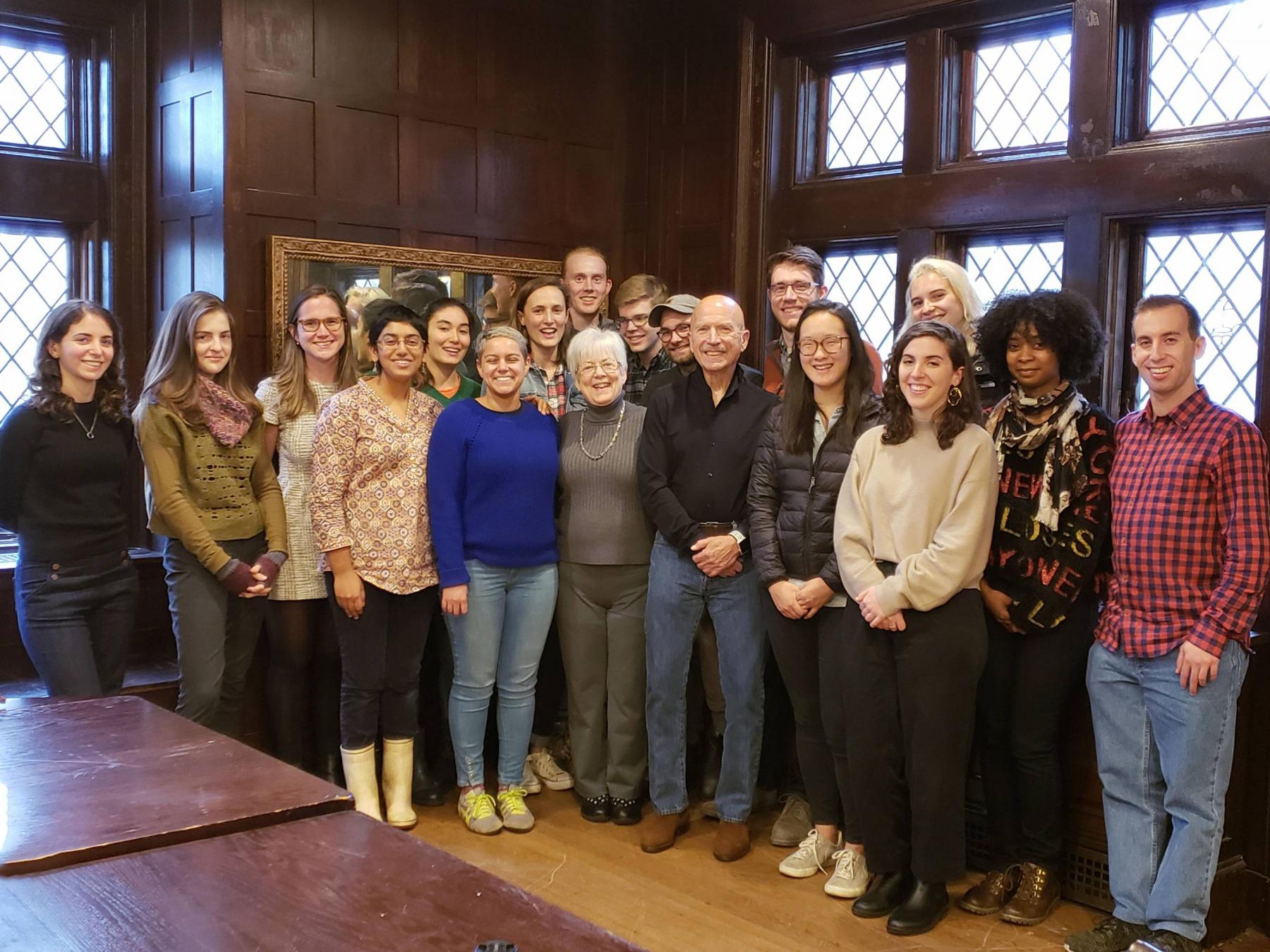
Photo courtesy of the John H. Pace, Jr. ’39 Center for Civic Engagement
The Princeton Environmental Institute was founded in 1994 on the principle of providing a central resource for spearheading environmental research at Princeton and fostering multidisciplinary collaborations. Faculty and researchers from across the University focus on society’s most pressing environmental issues, including climate change, carbon mitigation, biodiversity, urban resilience and water security.
Today, the Institute serves the University and the community as a vibrant central resource for environmental education, multidisciplinary research centers and initiatives, and public events addressing a range of environmental topics. More than 120 members of the faculty representing 30 academic disciplines are active in HMEI’s research and teaching programs.
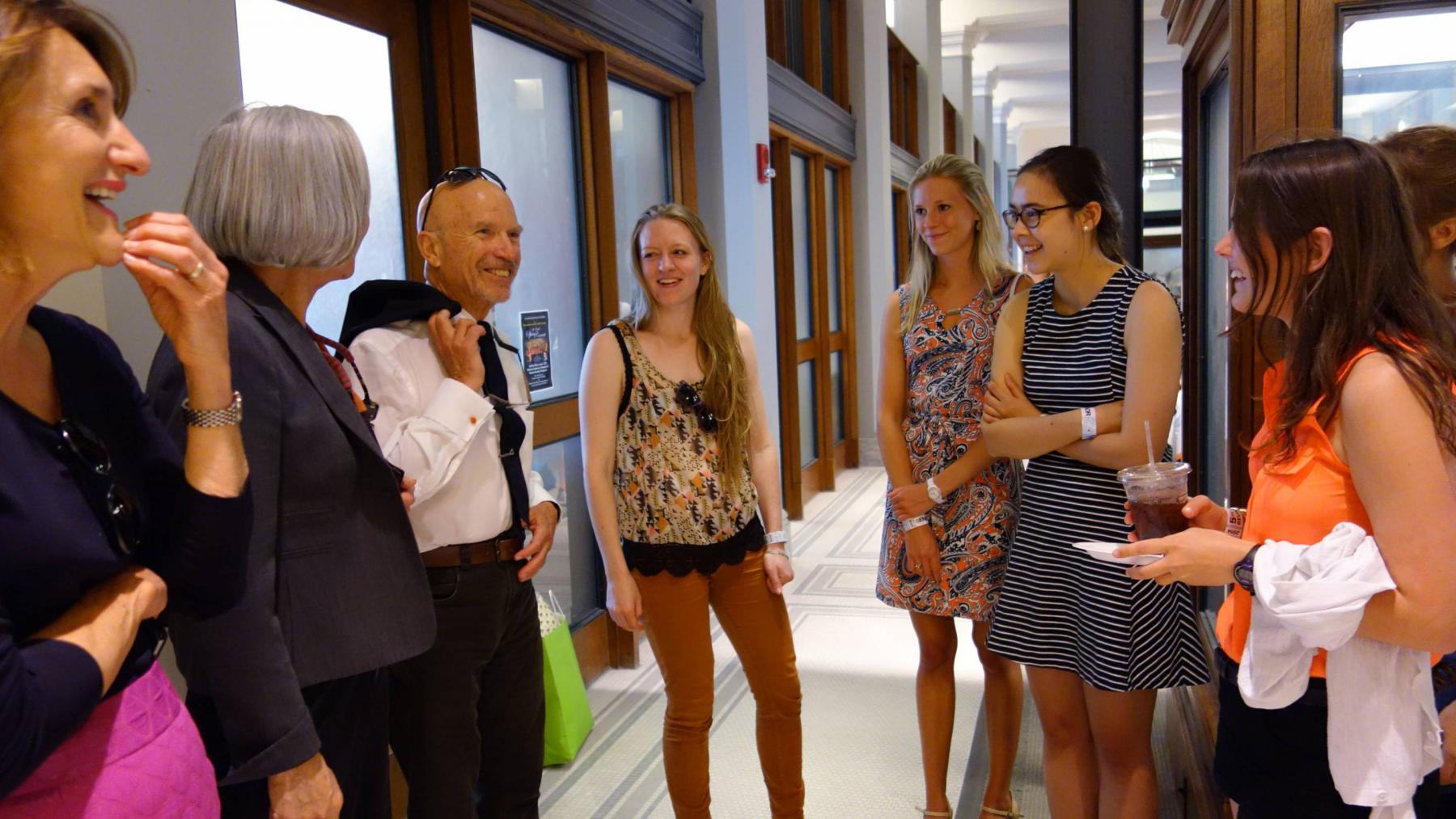
Photo courtesy of the John H. Pace, Jr. ’39 Center for Civic Engagement
In 2019, PEI celebrated its 25th anniversary by organizing the Princeton Environmental Forum, which featured University faculty and alumni environmental leaders — including Ferenbach — addressing urgent environmental issues for the 21st century.
“It is our hope that this gift inspires generations of students to engage in environmental stewardship because we’ve reached a moment where it will play a crucial role in every social, economic and political issue,” Ferenbach said. “Scientific research only becomes a reality if our understanding can be formulated into sound policy, and that policy only becomes effective if it actually can be implemented into our society. The Institute brings together experts from many academic disciplines, making it uniquely positioned to lead in this effort.”
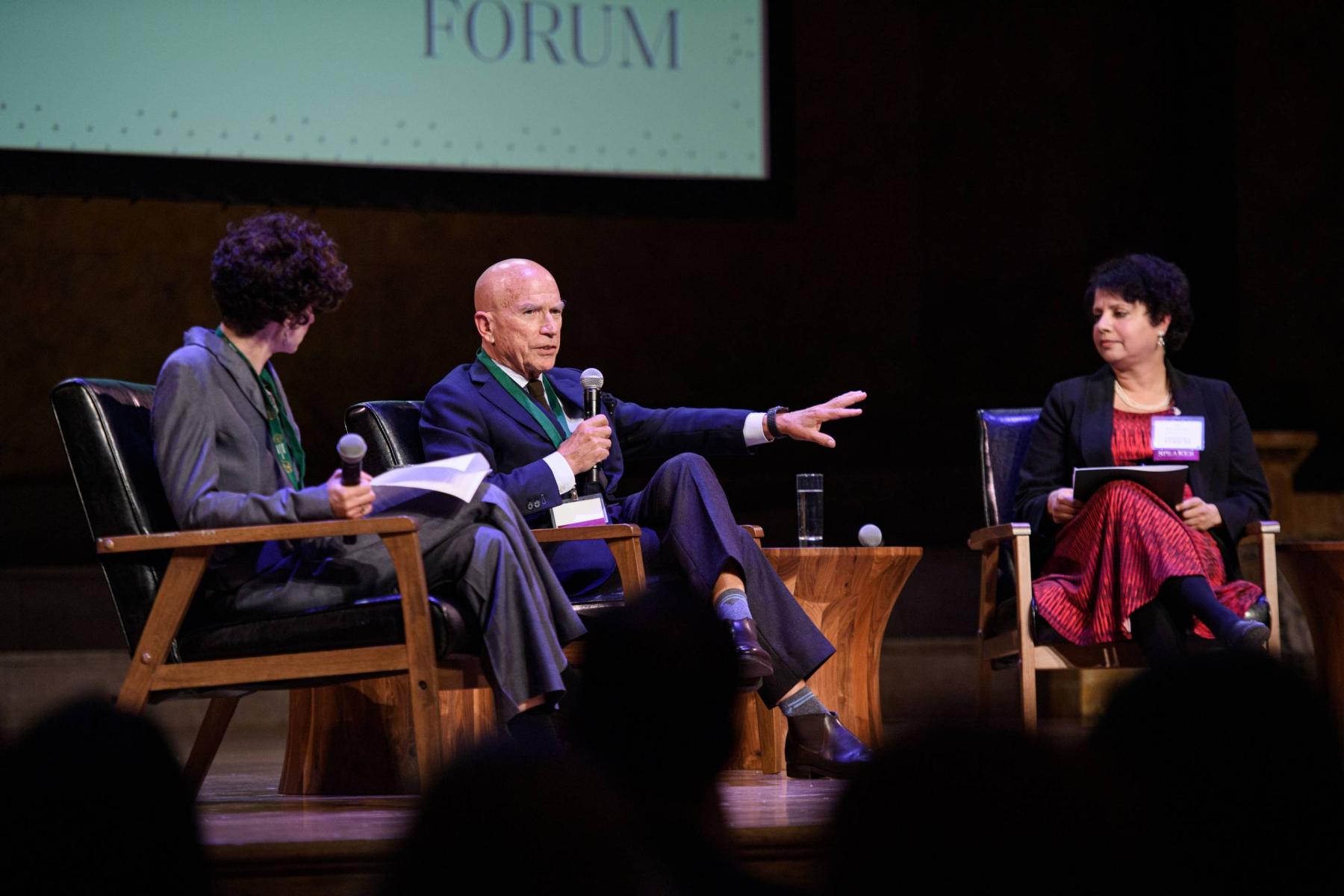
The High Meadows Foundation’s support will strengthen Princeton’s global leadership in teaching and research about the environment, particularly in the areas of climate change, energy, biodiversity, food and water. The University’s efforts are built upon world-leading programs in the environmental sciences, its unique interdisciplinary culture that provides the academic flexibility to understand interconnected issues, and its commitment to service and outward engagement.
“Today’s environmental challenges require solutions that transcend boundaries, from disciplinary boundaries to geopolitical ones. These solutions will require new and innovative approaches to research, education and outreach, so that the impacts of human activities on our natural environment can be managed effectively and sustainably,” said HMEI Director Michael Celia, Princeton’s Theodora Shelton Pitney Professor of Environmental Studies and professor of civil and environmental engineering.
“Carl Ferenbach has for many years not only had a deep understanding of the depth and breadth of the critical issues our global ecosystems face, but he also has been active and enthusiastic in working toward meaningful solutions,” Celia added. “High Meadows’ support will allow HMEI to build upon our core strength of fostering innovative collaborative research and establish new research initiatives and partnerships, as well as expand our teaching initiatives to educate the growing number of students from all communities and disciplines who understand that the future of our planet and all its species — including ours — relies on them.”
The Ferenbachs established the High Meadows Foundation in 2007 to amplify the local environmental efforts they had begun in Vermont, where they have maintained a farm residence over the past several decades. The foundation and its affiliates partner with organizations and businesses to develop innovative environmental science and policy, invest in solutions that promote environmental sustainability, and support a community of creative problem solvers through collaboration, inclusiveness and common values.
Through High Meadows, Ferenbach has made significant gifts to several of Princeton’s environmental endeavors over the past 25 years, including: the High Meadows Fellows Program in the John H. Pace, Jr. ’39 Center for Civic Engagement; the High Meadows Foundation Sustainability Fund; the Grand Challenges program, an integrated research and teaching program administered by HMEI that promotes faculty research and student involvement to address urgent and complex global environmental issues; the High Meadows Preceptorship Fund, currently supporting five HMEI faculty; the School of Engineering and Applied Science’s Andlinger Center for Energy and the Environment (ACEE); and the Science, Technology, and Environmental Policy (STEP) Program at the School of Public and International Affairs.
Ferenbach co-founded Berkshire Partners LLC, a private equity investment partnership based in Boston, in 1986, and served as a managing director until 2011. He now dedicates his time and energy to the foundation, as well as the High Meadows Fund, the High Meadows Institute, the High Meadows Investment Group and his Vermont farm — all of which are dedicated to addressing the complex environmental and societal challenges of the 21st century. He served two terms as a trustee of Princeton University. Ferenbach also serves as chairman of the Environmental Defense Fund, and on the boards of the Wilderness Society and Climate Central, a Princeton-based group of scientists and journalists who convey environmental research to policymakers and the public.
Princeton’s environmental research extends across the University, including HMEI, the Andlinger Center for Energy and the Environment, the Center for Policy Research on Energy and the Environment (C-PREE) at the School of Public and International Affairs, the Department of Geosciences, the Department of Ecology and Evolutionary Biology, and the Department of Civil and Environmental Engineering. Princeton also maintains strategic partnerships, including the Cooperative Institute for Modeling the Earth System with the National Oceanic and Atmospheric Administration’s Geophysical Fluid Dynamics Laboratory, located on Princeton’s Forrestal Campus; the Mpala Research Centre in Kenya; the Smithsonian Tropical Research Institute in Panama; and other institutions that provide research opportunities for both faculty and students.
“We’ve got to do everything we can for the environment, and we’ve got to do it with a real sense of urgency,” Ferenbach said. “We have the ability as humans to turn the tide. But the emphasis must be on ‘we.’”

